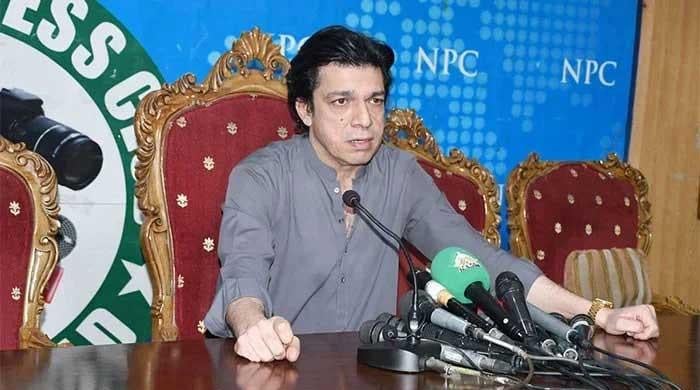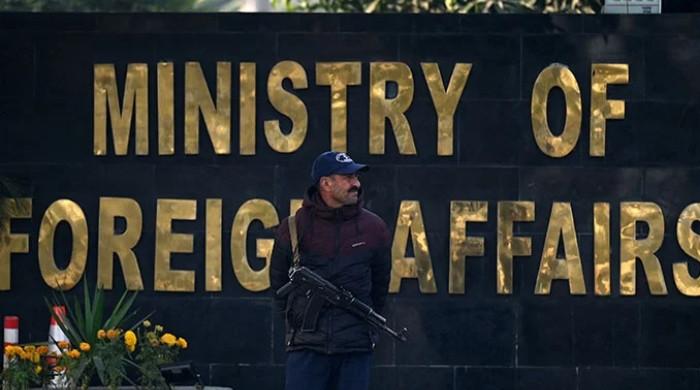India's ‘provocative statements' an attempt to divert attention from protests: DG ISPR
DG ISPR Asif Ghafoor says "Pakistan shall respond befittingly to Indian aggression along LoC"
December 19, 2019
Director General Inter-Services Public Relations (ISPR) Major General Asif Ghafoor on Thursday accused India of passing "provocative remarks" and using tension along the Line of Control to drive attention away from its internal chaos over the controversial Citizenship (Amendment) Act.
"Provocative statements and preparations for escalation along LOC by Indian COAS appear to be an effort as usual to divert world attention from wide spread protests in India against CAB. Pakistan Armed Forces shall befittingly respond to any Indian misadventure or aggression," the DG ISPR tweeted.
Major General Ghafoor, whose statement comes as a reaction to Indian army chief's recent remarks, warned that Pakistan's armed forces hold the right to respond befittingly to any aggression or misadventure by Indian troops on the border with Pakistan.
'Situation along LoC can escalate'
Indian army chief General Bipin Rawat, in suggestive and provocative remarks, had on Wednesday said that the situation along the LoC could escalate any time and that the Indian army was prepared for the spiraling of the escalation matrix, The Times of India reported.
The remarks came as thousands of people took to the streets in India again on Wednesday against a new citizenship law based on religion that has touched off violent unrest, and a southern state imposed curbs on public gatherings to pre-empt further demonstrations.
What is the controversial Citizenship Amendment Bill?
India had last week passed the contentious Citizenship Amendment Bill, enacted into law after the successful passage, that is widely seen as being aimed at marginalizing the 200-million strong Muslim minority in the country. The bill aims to grant citizenship to religious minorities from neighbouring countries, but excludes Muslims.
The bill was voted on amid raucous scenes in the Indian parliament and violent protests in the northeast of the country, leaving several dead and injured. Earlier last week, the bill had sailed through the lower house of the Indian legislature with 311 votes in favour and only 80 against. It passed the upper house with 125 in favour and 99 against.
According to the new amendment to the Indian constitution, people belonging to the Hindu, Sikh, Buddhist, Jain, or Parsi and Christian faiths, and fleeing ‘persecution’ in Muslim-majority Afghanistan, Bangladesh and Pakistan, may be granted Indian citizenship. There is no similar provision for Muslim refugees, enraging the Muslim minority of India.









